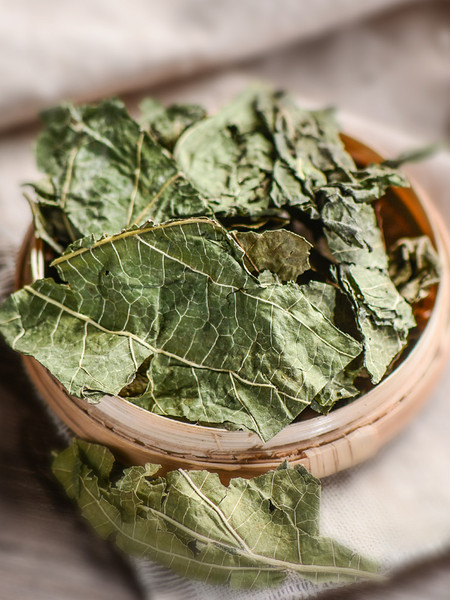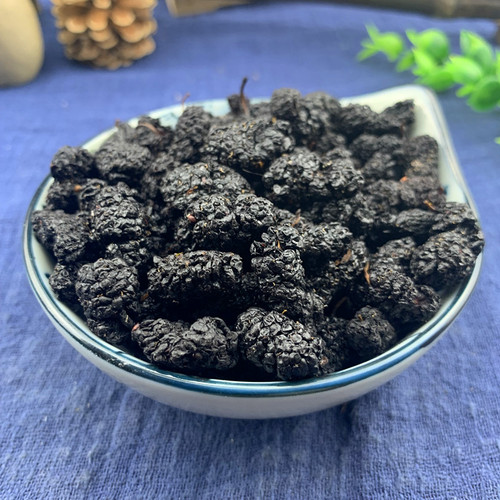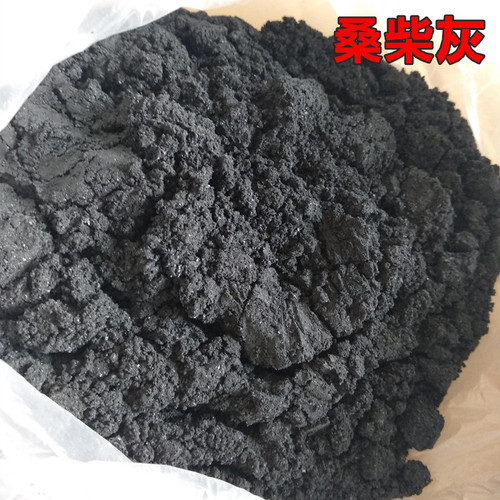Product Overview
Parts used: Dried leaves
TCM category: Cool/Acrid herbs that release the Exterior
TCM nature: Cold
TCM taste(s): Bitter Sweet
Meridian affinity: Liver Lung
Scientific name: Morus alba
Use of mulberry leaves (Sang Ye) in TCM
Please note that you should never self-prescribe TCM ingredients. A TCM ingredient is almost never eaten on its own but as part of a formula containing several ingredients that act together. Please consult a professional TCM practitionner, they will be best able to guide you.
Preparation: Remove impurities, cut in smaller pieces and dry
Dosage: 5 - 15 grams
Main actions according to TCM*: Relieves the Exterior and clears Heat. Clears Heat in the Lung with associated Dryness. Clears the Liver for either Wind-Heat or Yin Deficient Heat. Cools the Blood.
Primary conditions or symptoms for which mulberry leaves may be prescribed by TCM doctors*: Common cold Dry cough Headache Uveitis Impaired vision Sore throat Conjunctivitis
Contraindications*: This herb should not be used by those who have weakness and Cold in the Lungs.
Common TCM formulas in which mulberry leaves are used*:
For Wind-Heat cough combine mulberry leaves with platycodon roots (Jie Geng), apricot seeds (Xing Ren) and snake gourds (Gua Lou).
For External Wind Heat with fever, sore throat, chills and red eyes combine mulberry leaves with chrysanthemum flowers (Ju Hua), forsythia fruits (Lian Qiao), wild mint (Bo He) and platycodon roots (Jie Geng).
For Lung Heat combine mulberry leaves with loquat leaves (Pi Pa Ye) and platycodon roots (Jie Geng).
For Liver fire or Wind-Heat with red and painful eyes combine mulberry leaves with cassia seeds (Jue Ming Zi) and chrysanthemum flowers (Ju Hua).
For Liver and Kidney Yin deficiency with dizziness, blurred vision and headache combine mulberry leaves with black sesame seeds (Hei Zhi M?).
For parched throat, blood-tinged sputum and Lung Yin deficiency combine mulberry leaves with american ginseng (Xi Yang Shen), apricot seeds (Xing Ren) and loquat leaves (Pi Pa Ye).
Key TCM concepts behind mulberry leaves (Sang Ye)'s properties
In Traditional Chinese Medicine (TCM), mulberry leaves are plants that belong to the 'Cool/Acrid herbs that release the Exterior' category. Herbs that release the Exterior aim to to treat the early stages of diseases that affect the upper respiratory tract, the eyes, the ears, the nose, the throat or the skin. TCM believes that External diseases such as colds or allergies can only invade the body if the External environment overwhelms our Wei Qi (the TCM version of the immune system). In order to counteract this invasion Cool/Acrid herbs aim to induce sweating by dilating our capillary pores so that they release more sweat. The belief is that this will expel the disease from the body and stop it from invading further.
As suggested by its category mulberry leaves are plants that are Cold in nature. This means that mulberry leaves typically help people who have too much "heat" in their body. Balance between Yin and Yang is a key health concept in TCM. Those who have too much heat in their body are said to either have a Yang excess (because Yang is Hot in nature) or a Yin deficiency (Yin is Cold in Nature). Depending on your condition mulberry leaves can help restore a harmonious balance between Yin and Yang.
Mulberry leaves also taste Bitter and Sweet. The so-called "five elements" theory in Chinese Medicine states that the taste of TCM ingredients is a key determinant of their action in the body. Bitter ingredients like mulberry leaves tend to have a cleansing action on the body by clearing heat, drying dampness and promoting elimination via urination or bowel movements. On the other hand Sweet ingredients tend to slow down acute reactions and detoxify the body. They also have a tonic effect because they replenish Qi and Blood.
The tastes of ingredients in TCM also determine what organs and meridians they target. As such mulberry leaves are thought to target the Liver and the Lung. In TCM the Liver is often referred as the body's "general" because it is in charge of regulating the movements of Qi and body fluids. It also takes a leading role in balancing our emotions. In addition to performing respiration, the Lungs are thought to be a key part of the production chain for Qi and the body fluids that nourish the body.
Use of mulberry leaves (Sang Ye) as food
Mulberry leaves are also eaten as food. It is used as an ingredient in dishes such as Stuffed Mulberry Leaves.









